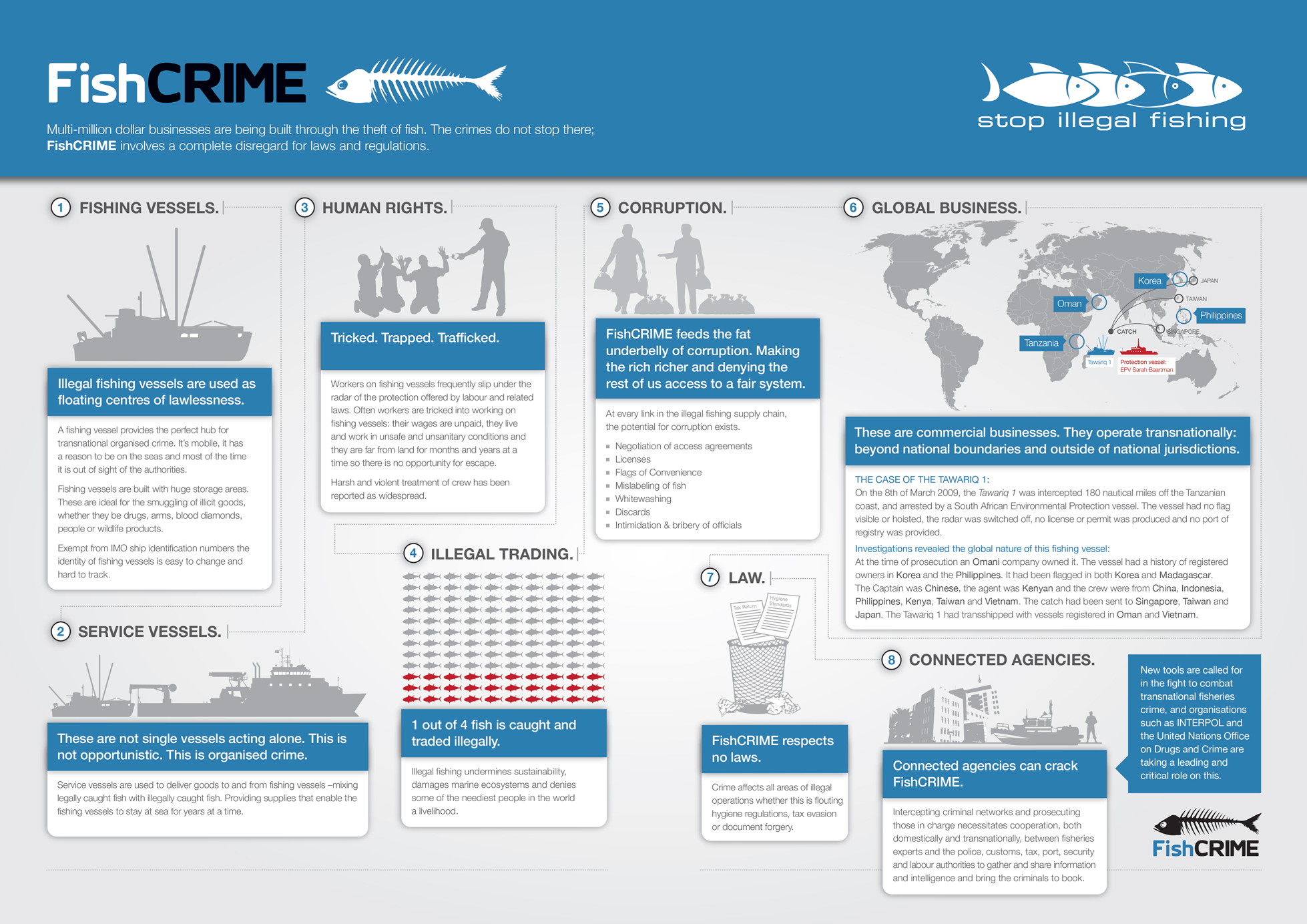Report
Record of the First International Symposium on FishCRIME
This report presents an extended summary of the International Symposium on FishCRIME, held on 12-13 October 2015 in Cape Town, South Africa. The Symposium was hosted by the South African Department of Agriculture, Forestry and Fisheries, the Norwegian Ministry of Trade, Industry and Fisheries, Stop Illegal Fishing and PescaDOLUS. The Symposium was made possible through funding from the Norwegian Ministry of Trade, Industry and Fisheries.
This report includes a summary of each of the presentations made at the Symposium and the subsequent discussions. The presenters’ biographical information is available in Annex 1 and a list of participants can be found in Annex 2.
The Symposium was divided into four sessions or panels:
- Cases: Illegal fishing and transnational crime cases – what are the links and where is the evidence?
- Cooperation: Fighting transnational crimes in fisheries – who is doing it and what are they doing?
- Challenges: Prosecuting the criminals – what are the challenges and how do we overcome them?
- Change: Getting organised for change – what is needed to stop fisheries crime?
Under each session, panellists provided a presentation on specific aspects of fisheries crime, these presentations were followed by a chaired panel discussion led by questions and comments from the audience.
The first session on Cases illustrated the broad spectrum of what type of criminal acts can constitute fisheries crime or crimes within the fisheries value chain, the complexity and range of criminal elements involved and the transnational nature of the crimes. The cases presented included illustrations of the illicit trade in explosives, forced labour, murder and environmental damage, all demonstrating criminal offenses.
The session on Cooperation explored the work of international inter-governmental agencies, a pan-African agency and the work of an African Task Force. The presenters considered how these different types of organisation coordinate work on fisheries crime, their mandates, the tools employed and their collaboration with different partners.
Challenges, discussed in Panel III, looked specifically at South Africa and Indonesia to define what type of challenges they face in tackling fisheries crime (and in part how they have overcame some of these challenges), as well as the challenges of fisheries crime in the value chain, both from the point of view of commodity trade and from the human aspect.
The final session, Change, looked at the ratification and implementation of international conventions, laws to facilitate the identification of fisheries crime, capacity building efforts and how to link processes and organisations in order to have coherent approaches to overcome fisheries crimes.

Credits
The Symposium was hosted by the South African Department of Agriculture, Forestry and Fisheries, the Norwegian Ministry of Trade, Industry and Fisheries, Stop Illegal Fishing and PescaDOLUS. The Symposium was made possible through funding from the Norwegian Ministry of Trade, Industry and Fisheries.